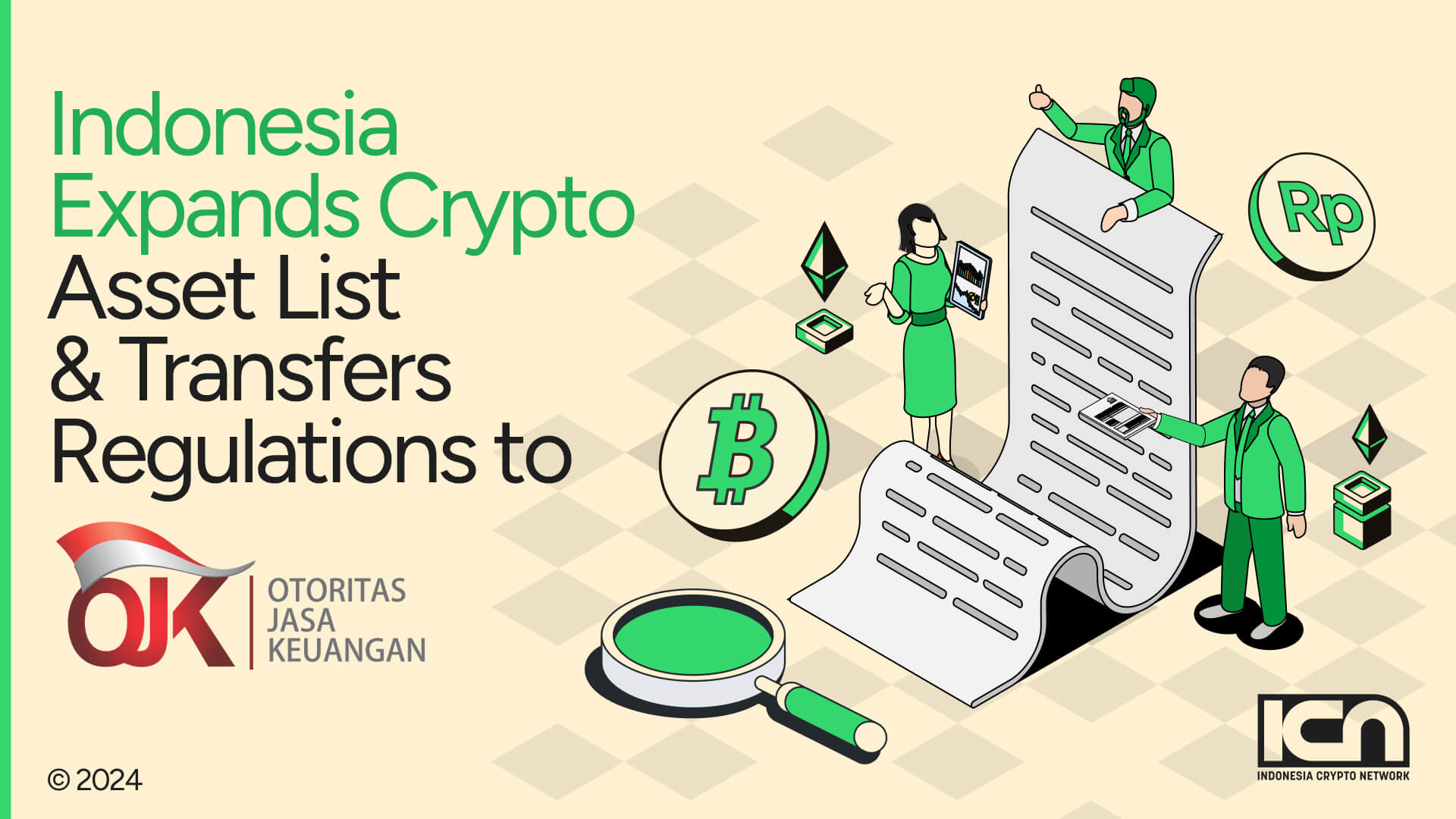On January 9, 2025, Indonesia’s Commodity Futures Trading Regulatory Agency (Bappebti) released an updated list of 851 legally tradable cryptocurrencies, significantly expanding from the previously recognized 501 assets. This marks the third revision of Bappebti Regulation Number 11 of 2022 and includes widely known assets such as Bitcoin, Ethereum, Solana, XRP, and USDT, alongside several altcoins and meme coins that previously sparked public debate.
This regulatory update aims to provide enhanced legal certainty and protection for users transacting on local exchanges. As part of the regulation, any tokens not included in the official Bappebti list must be delisted from local exchanges, ensuring compliance and market transparency.
Read more: Indonesia’s 2024 Crypto & Web3 Report: What You Need to Know
Shift in Regulatory Oversight
On January 10, 2025, the oversight and regulatory authority for digital financial assets, including cryptocurrencies and financial derivatives, officially transferred from Bappebti to the Financial Services Authority (OJK) and Bank Indonesia (BI). The handover was formalized with the signing of a Handover Minutes (BAST) and a Memorandum of Understanding (NK) at the Ministry of Trade office in Jakarta.
OJK Chairman Mahendra Siregar stated that the transition was mandated under two regulations: Article 8, Section 4, and Article 312, Paragraph 1 of Law Number 4 of 2023 on the Development and Strengthening of the Financial Sector (UU P2SK), along with Government Regulation Number 49 of 2024 regarding the transfer of authority over digital financial assets, including cryptocurrencies and financial derivatives. The handover must be completed within 24 months of the enactment of UU P2SK, which was on January 12, 2023.
Mahendra emphasized that this shift aims to stabilize the financial system, enhance market depth, and ensure consumer protection. He further reassured that the regulatory transition would be smooth to avoid market disruption. To support this process, OJK has issued regulatory frameworks, including OJK Regulation (POJK) No. 27 of 2024 on digital financial assets and cryptocurrency trading, and Circular Letter No. 20 of 2024 on reporting and supervision mechanisms for digital financial assets and cryptocurrencies.
For financial derivatives, Mahendra noted that OJK is preparing POJK No. 1 of 2025, which will govern derivatives backed by securities, currently pending finalization.
OJK has also established a digital licensing system, SPRINT (Sistem Perizinan dan Registrasi Terintegrasi), to streamline licensing processes for digital financial assets, cryptocurrencies, and financial derivatives. Throughout the transition, OJK and Bappebti have coordinated closely to ensure market stability and compliance.
Read more: Indonesia’s Crypto Market Enters a New Era in 2025
Impact on the Crypto Market
The regulatory shift has triggered mixed reactions within the crypto community. While some view the expansion of approved assets as a positive move towards legitimizing the market, concerns have been raised regarding the potential for stricter regulations to stifle innovation and limit new projects from entering the Indonesian market.
Chairman of the OJK Board of Commissioners, Mahendra Siregar, stressed the principle of “same activity, same risk, same regulation” to ensure consistent financial stability. Meanwhile, BI Senior Deputy Governor Destry Damayanti noted that increased oversight of PUVA derivatives could strengthen the national financial market by improving risk management through hedging instruments.
Read more: 9 Asian Countries Leading the Crypto Revolution
What This Means for Foreign Businesses
For global crypto projects looking to enter the Indonesian market, these regulatory changes bring both challenges and opportunities. The expansion of the approved asset list reflects a maturing market with clearer standards, enhancing investor protection and market integrity. At the same time, exchanges listing tokens not on the Bappebti list face mandatory delisting, and companies failing to meet regulatory standards risk sanctions and restricted market access.
This evolving landscape underscores the importance of expert guidance when navigating Indonesia’s crypto regulations. ICN can play a strategic role in assisting foreign businesses with:
- Licensing Guidance: Ensuring your project meets the necessary licensing requirements.
- Local Exchange Registration: Providing guidance on how to list tokens on compliant Indonesian exchanges.
- Regulatory Connections: Assisting projects in connecting with Asosiasi Blockchain dan Pedagang Aset Kripto Indonesia (Aspakrindo-ABI) for regulatory support.
ICN’s consulting services help businesses not only stay compliant but also thrive in a transparent and secure market, enabling long-term growth and market confidence.
The Road Ahead
With this regulatory shift, Indonesia’s digital financial ecosystem is on track to become more integrated, transparent, and accountable. As regulatory clarity increases, the market is expected to offer better protection for both consumers and investors, while opening doors for innovative projects that meet compliance standards.
For businesses seeking to enter this rapidly expanding market, proactive compliance is essential. Get in touch with ICN today to ensure your entry into Indonesia’s crypto market is secure, strategic, and fully compliant.




